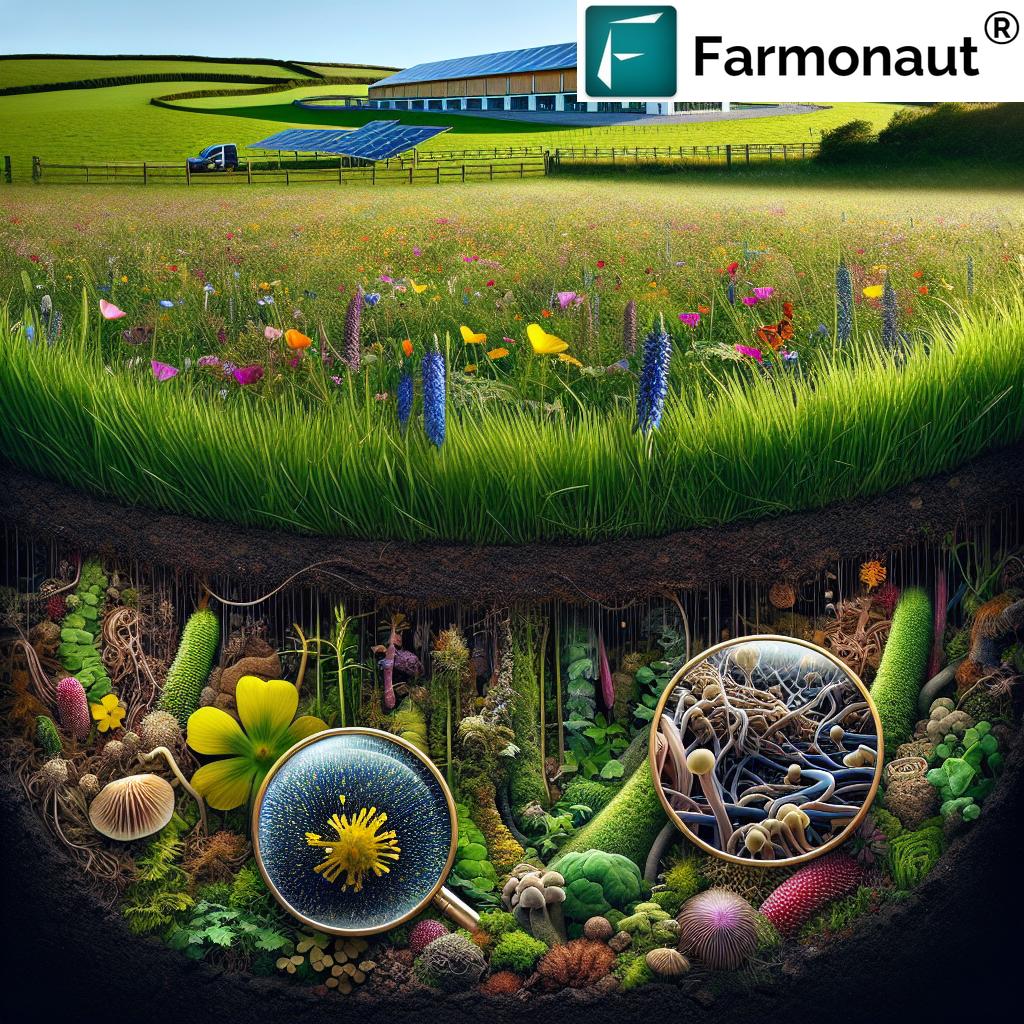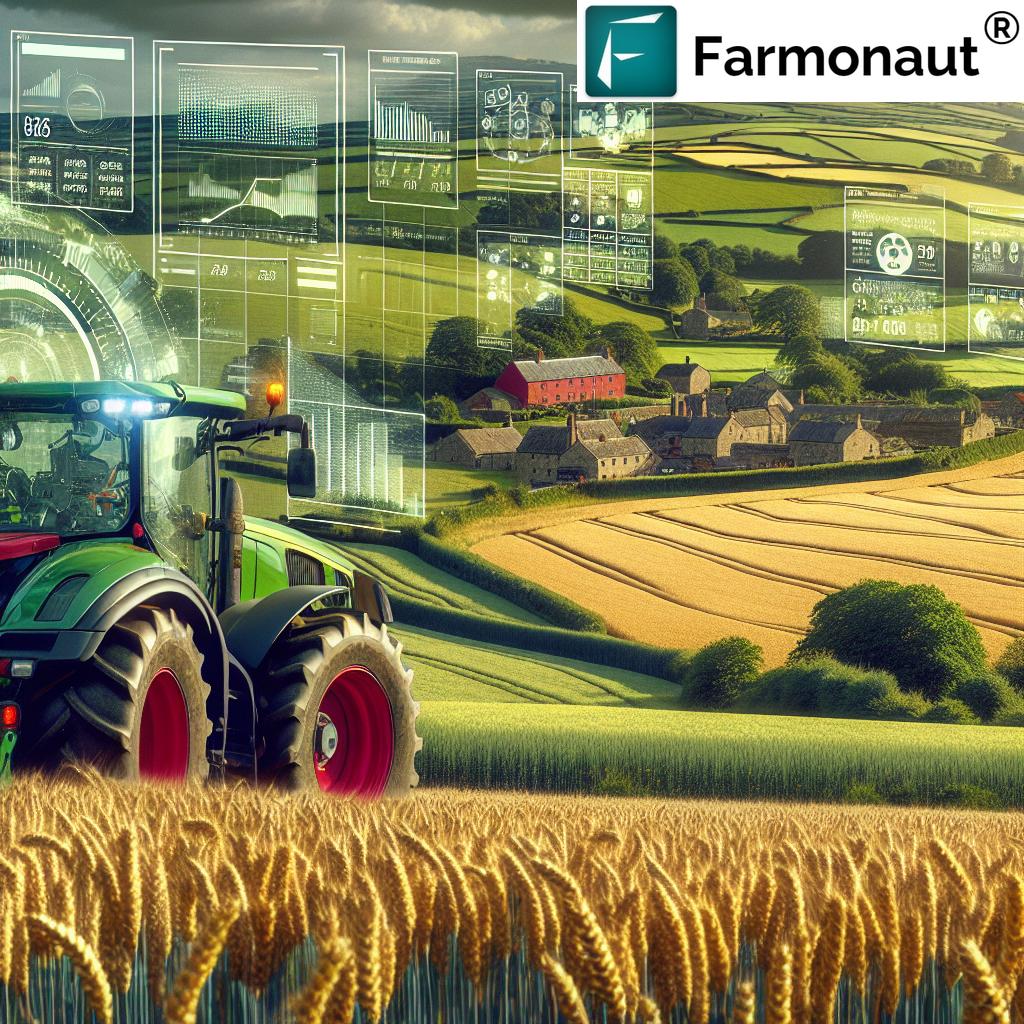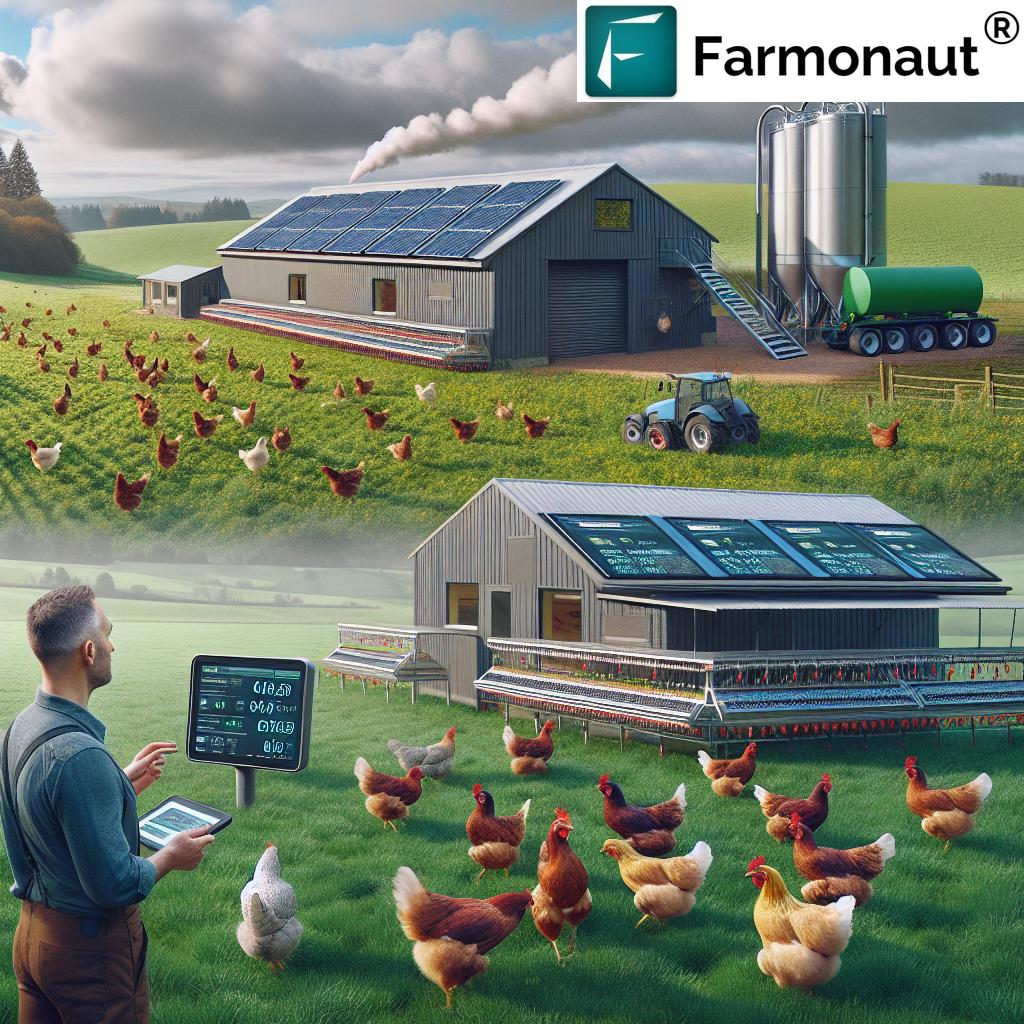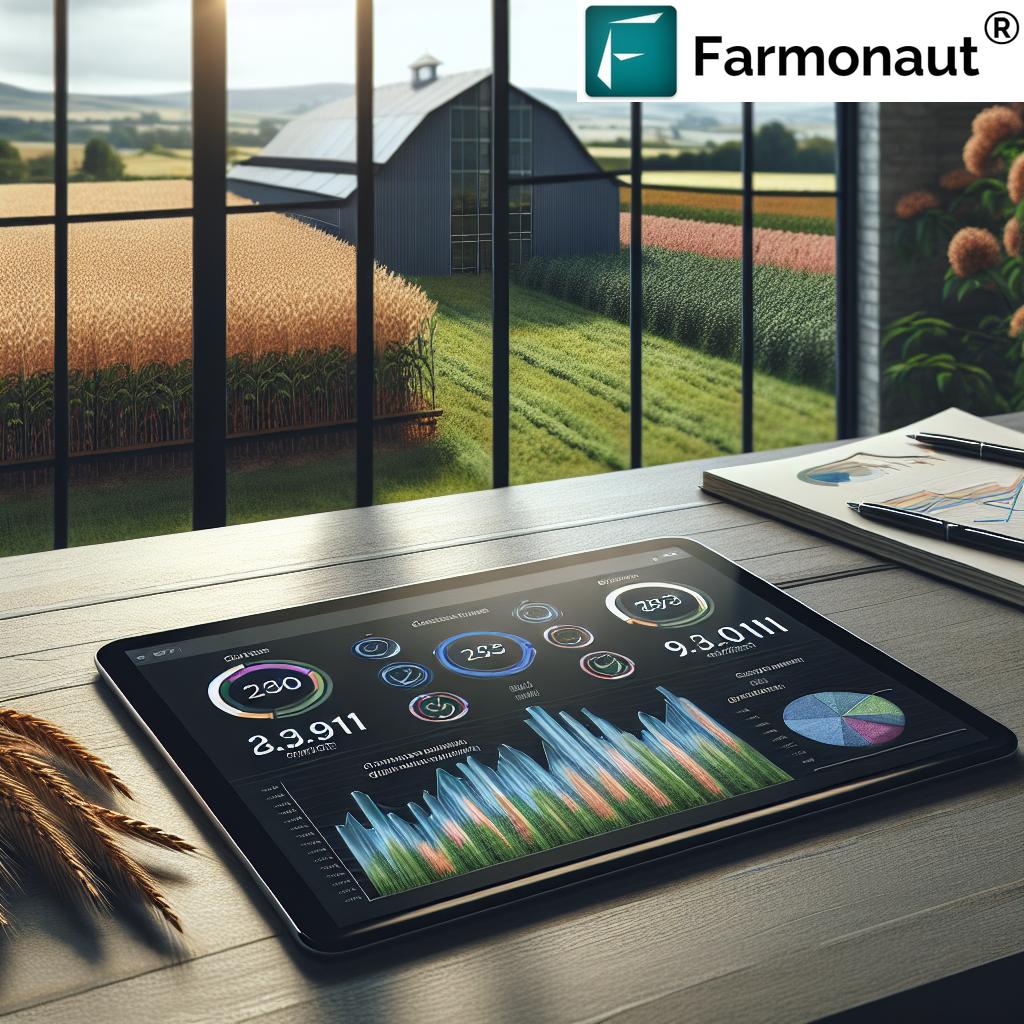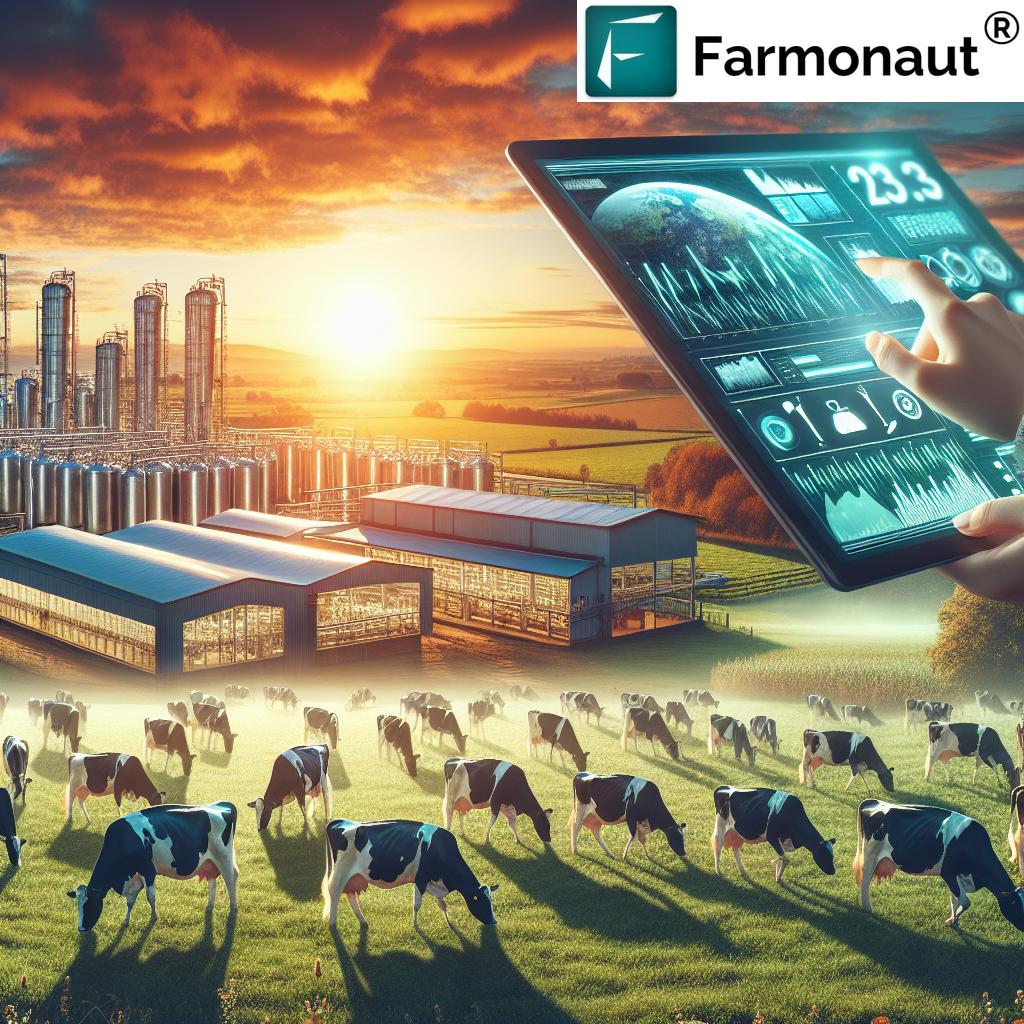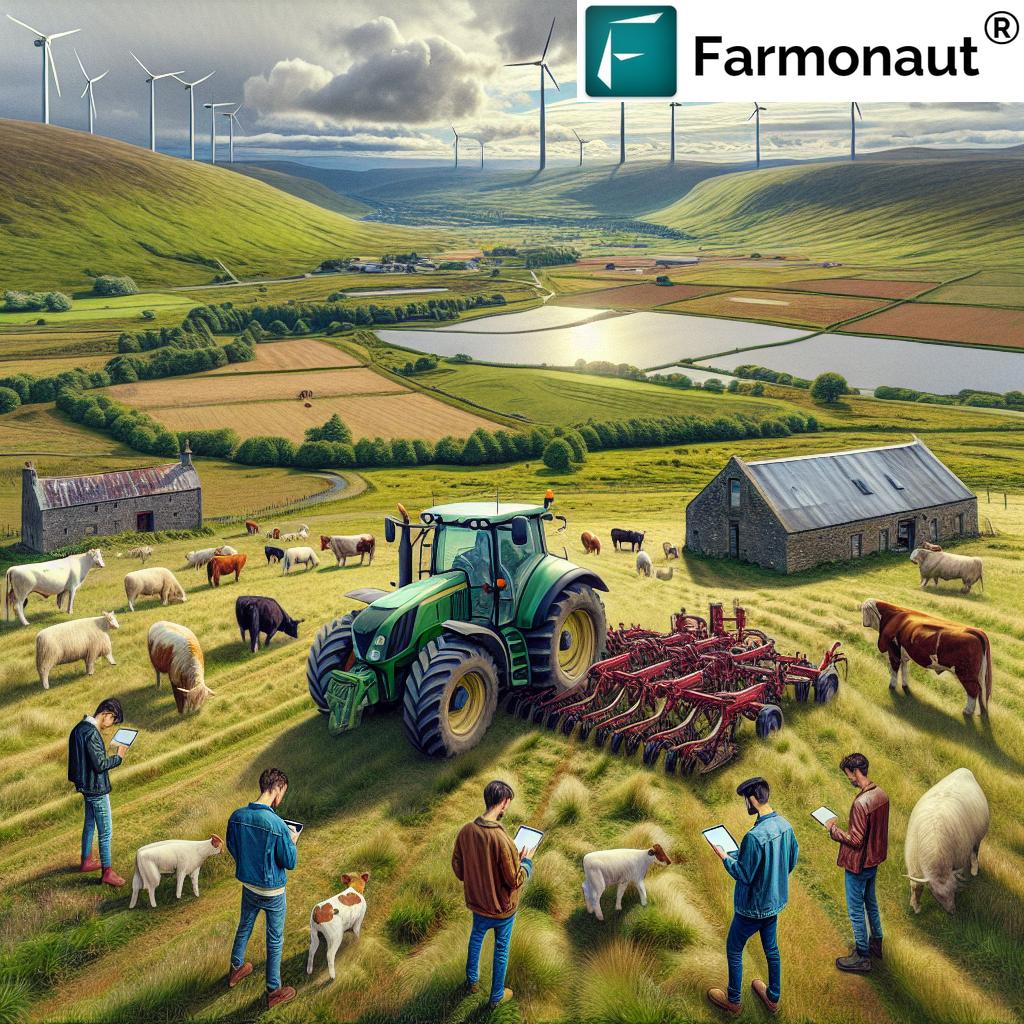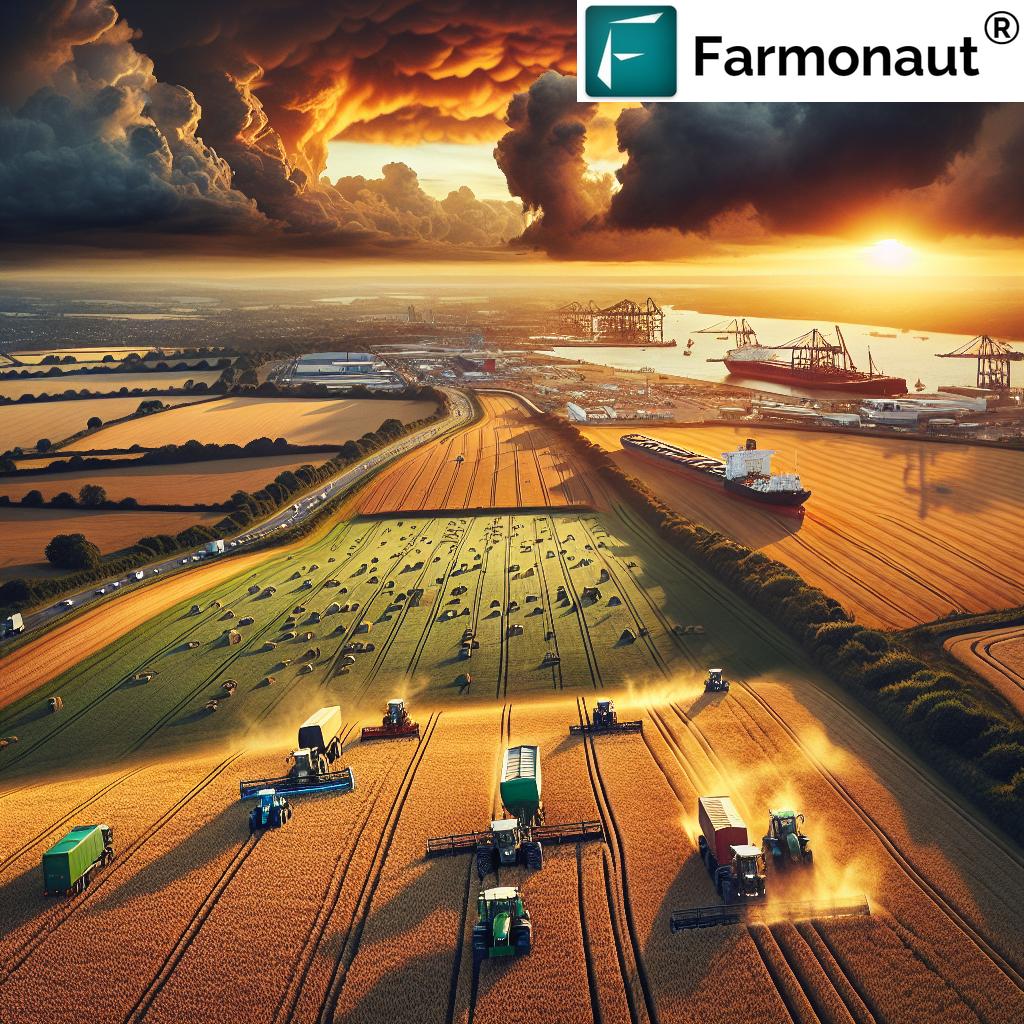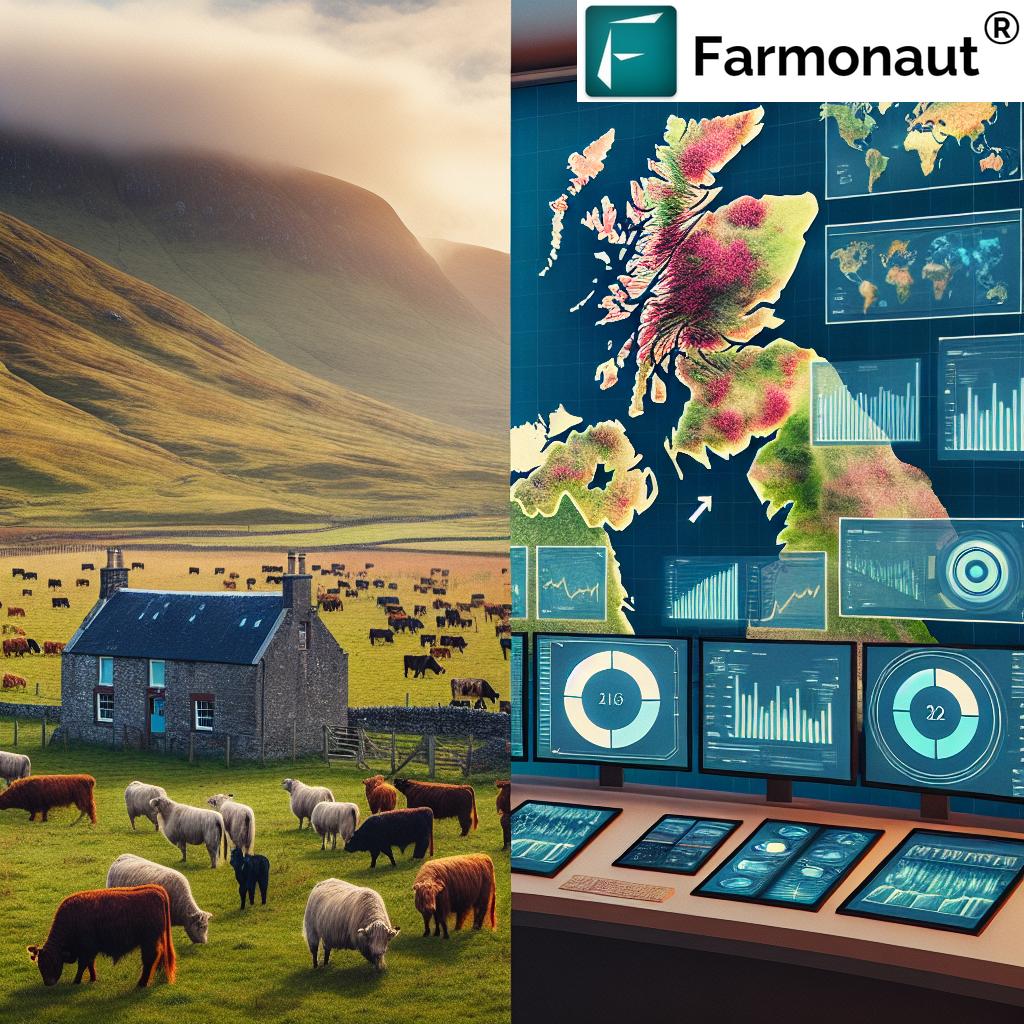Revolutionizing Agritech: Farm491 Unveils Cutting-Edge Workshops in Gloucestershire for Sustainable Innovation
“Farm491’s agritech workshops in Gloucestershire attract over 100 innovators annually, fostering sustainable farming solutions.”
Welcome to the exciting world of agricultural innovation! At Farmonaut, we’re thrilled to explore the latest developments in agritech, particularly the groundbreaking workshops recently unveiled by Farm491 in Gloucestershire. As pioneers in precision agriculture solutions, we’re always eager to share insights into how technology is reshaping the farming landscape. In this comprehensive blog post, we’ll delve into the cutting-edge advancements that are revolutionizing sustainable farming practices and driving the future of food production.
The Rise of Agritech Innovation
The agricultural sector is undergoing a profound transformation, powered by technological advancements that promise to enhance productivity, sustainability, and efficiency. Farm491, a renowned agritech incubator, has taken center stage in this revolution by introducing a series of workshops that showcase the latest in agricultural technology and digital land management.
These workshops serve as a beacon for farmers, entrepreneurs, and innovators alike, offering a glimpse into the future of farming. By focusing on sustainable innovation, Farm491 is not just improving current practices but also shaping the very foundation of how we approach agriculture in the 21st century.
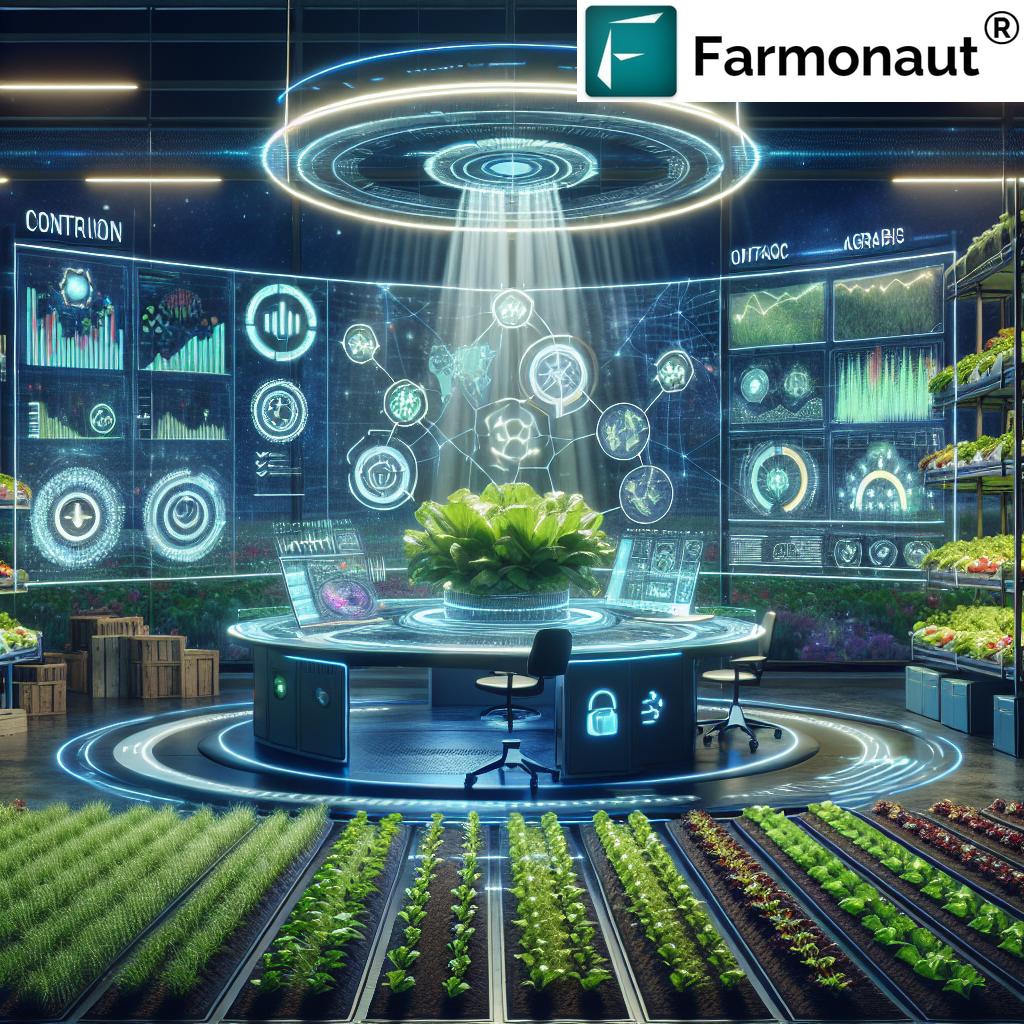
The Power of Agricultural Data Analytics
One of the key focuses of Farm491’s workshops is the integration of agricultural data analytics into farming operations. This powerful tool is transforming how farmers make decisions, optimize resources, and increase yields. By harnessing the power of big data, farmers can now:
- Predict crop yields with greater accuracy
- Optimize irrigation schedules
- Identify potential pest and disease outbreaks before they spread
- Make informed decisions about planting and harvesting times
At Farmonaut, we understand the importance of data-driven agriculture. Our satellite-based crop health monitoring system provides farmers with real-time insights into vegetation health, soil moisture levels, and other critical metrics. This information empowers farmers to make informed decisions that can significantly improve their crop yields and reduce resource wastage.
Explore our advanced agri solutions: Farmonaut Web App
Smart Farming Techniques: The Future of Agriculture
Farm491’s workshops also highlight the latest smart farming techniques that are revolutionizing the agricultural landscape. These innovative approaches combine traditional farming knowledge with cutting-edge technology to create more efficient and sustainable farming practices. Some of the key smart farming techniques showcased include:
- Precision agriculture using GPS and satellite imagery
- IoT-enabled sensors for real-time monitoring of soil and crop conditions
- Automated irrigation systems that optimize water usage
- Drone technology for crop surveillance and targeted pesticide application
These smart farming techniques not only improve efficiency but also contribute significantly to sustainable farming practices by reducing the use of resources and minimizing environmental impact.
Agribusiness Growth Strategies in the Digital Age
The workshops at Farm491 also focus on equipping agribusinesses with the tools and knowledge needed to thrive in the digital age. As the agricultural sector becomes increasingly technology-driven, it’s crucial for businesses to adapt and implement effective growth strategies. Some key areas covered in these workshops include:
- Digital marketing for agribusinesses
- E-commerce platforms for direct-to-consumer sales
- Supply chain optimization using blockchain technology
- Customer relationship management (CRM) systems tailored for agriculture
At Farmonaut, we’re committed to supporting agribusinesses in their digital transformation journey. Our platform offers not just farm management solutions but also tools for fleet and resource management, helping agribusinesses optimize their operations and reduce costs.
The Role of Farm Technology Incubators
Farm491’s initiative highlights the crucial role that farm technology incubators play in fostering agri-tech entrepreneurship. These incubators provide a nurturing environment for startups and innovators to develop and test their ideas, offering:
- Access to state-of-the-art facilities and equipment
- Mentorship from industry experts
- Networking opportunities with potential investors and partners
- Workshops and training sessions on various aspects of agritech
By supporting these incubators, we’re not just fostering individual businesses but cultivating an entire ecosystem of innovation that will drive the future of agriculture.
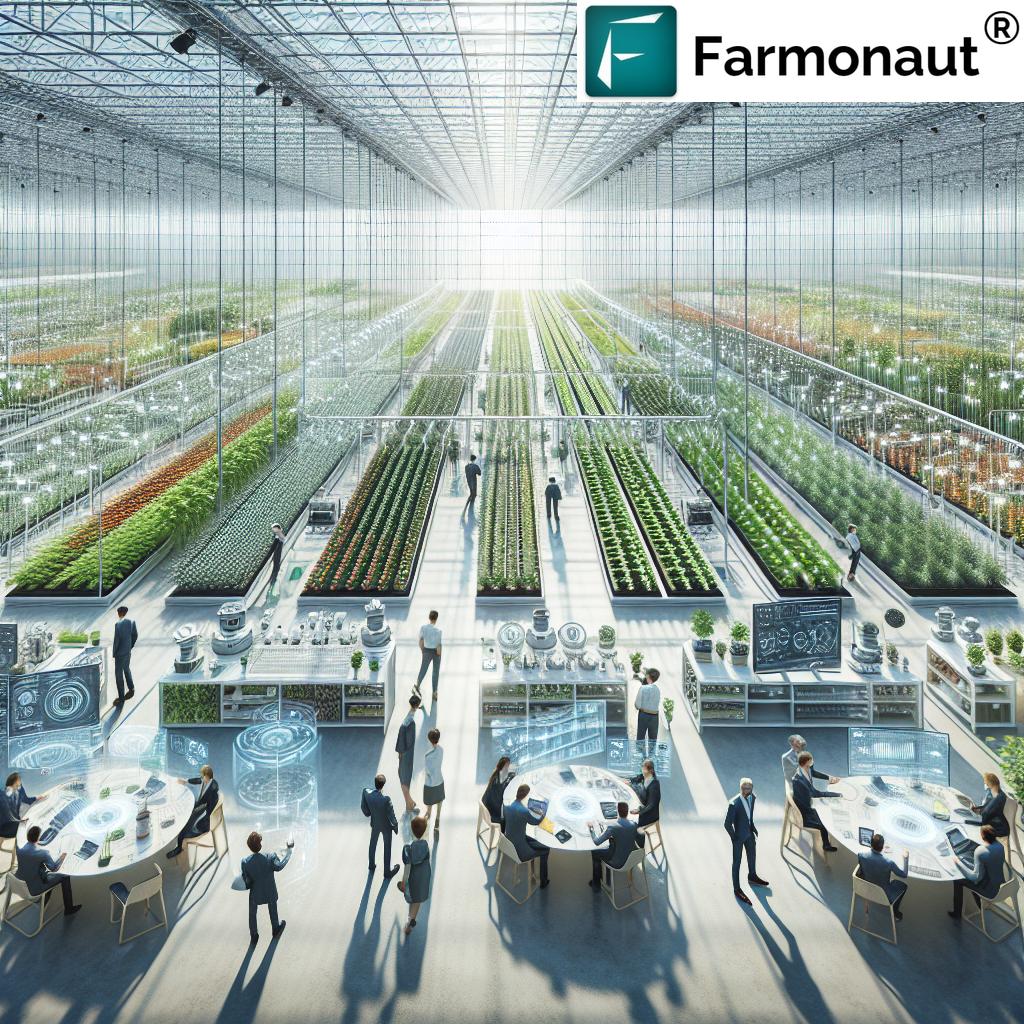
Digital Land Management: Transforming Agricultural Landscapes
One of the most exciting areas covered in Farm491’s workshops is digital land management. This innovative approach uses advanced technologies to optimize land use, improve soil health, and enhance overall farm productivity. Some key aspects of digital land management include:
- Satellite-based mapping and surveying
- GIS (Geographic Information System) for precise land planning
- Soil health monitoring using IoT sensors
- Predictive analytics for crop rotation and land use optimization
At Farmonaut, we’re at the forefront of digital land management with our satellite-based farm management solutions. Our technology allows farmers to monitor their land in real-time, making informed decisions about crop planning, resource allocation, and sustainability practices.
Sustainable Farming Practices: A Core Focus
At the heart of Farm491’s workshops is a strong emphasis on sustainable farming practices. As we face global challenges like climate change and resource scarcity, it’s crucial that we develop and implement farming methods that are both productive and environmentally friendly. Some key sustainable practices highlighted in the workshops include:
- Precision agriculture to reduce resource waste
- Integrated pest management to minimize chemical use
- Conservation tillage to improve soil health
- Agroforestry and crop diversification for ecosystem balance
Farmonaut’s platform aligns perfectly with these sustainable goals. Our carbon footprinting feature, for instance, helps agribusinesses monitor and reduce their environmental impact, contributing to more sustainable farming practices across the industry.
“Agricultural data analytics have increased crop yields by up to 20% for farmers adopting precision agriculture techniques.”
Innovative Agritech Platforms: Empowering Farmers
Farm491’s workshops showcase a range of innovative agritech platforms that are empowering farmers with unprecedented access to information and tools. These platforms cover various aspects of farming, including:
- Crop management systems
- Weather forecasting and climate analysis tools
- Market price prediction and commodity trading platforms
- Farm equipment sharing and rental services
As a leader in this space, Farmonaut’s platform offers a comprehensive suite of tools that combine satellite technology, AI, and blockchain to meet the diverse needs of modern agriculture. Our Jeevn AI Advisory System, for instance, delivers real-time insights and personalized farm advice, helping farmers make better decisions and improve their productivity.
Explore our API for developers: Farmonaut API
The Impact of Agritech on Food Security
One of the most significant outcomes of the agritech revolution, as highlighted in Farm491’s workshops, is its potential impact on global food security. By improving crop yields, reducing waste, and optimizing resource use, agritech innovations are helping to address the challenge of feeding a growing global population. Some key ways in which agritech is contributing to food security include:
- Increasing crop yields through precision agriculture
- Reducing post-harvest losses with improved storage and logistics solutions
- Enhancing crop resilience through advanced breeding techniques
- Improving food distribution and access through digital platforms
At Farmonaut, we’re proud to be part of this important mission. Our technology not only helps individual farmers improve their yields but also provides valuable data for policymakers and researchers working on broader food security initiatives.
The Future of Agritech: Emerging Trends
Farm491’s workshops also offer a glimpse into the future of agritech, highlighting emerging trends that are set to reshape the agricultural landscape. Some of the most exciting developments include:
- Artificial Intelligence and Machine Learning in crop prediction and disease detection
- Vertical farming and urban agriculture solutions
- Gene editing technologies for crop improvement
- Robotics and automation in farming operations
As we look to the future, Farmonaut is committed to staying at the forefront of these innovations, continuously evolving our platform to incorporate the latest advancements in agricultural technology.
Learn more about our API: API Developer Docs
Agritech Innovation Comparison
| Technology Type | Application | Estimated Efficiency Improvement | Sustainability Impact (1-5) |
|---|---|---|---|
| Precision Agriculture Tools | GPS-guided machinery, variable rate technology | 15-20% | 4 |
| Smart Irrigation Systems | Soil moisture sensors, weather data integration | 30-50% water savings | 5 |
| AI-driven Crop Monitoring | Disease detection, yield prediction | 10-15% | 3 |
| Drone Technology | Crop surveillance, targeted spraying | 20-30% reduction in pesticide use | 4 |
| Blockchain in Supply Chain | Traceability, quality assurance | 5-10% reduction in food waste | 3 |
Overcoming Challenges in Agritech Adoption
While the potential of agritech is immense, Farm491’s workshops also address the challenges faced in its widespread adoption. Some of the key hurdles include:
- Initial investment costs for new technologies
- Lack of digital literacy among some farmers
- Data privacy and security concerns
- Integration with existing farming practices
At Farmonaut, we’re committed to addressing these challenges. Our platform is designed to be user-friendly and accessible, with flexible pricing options to suit farms of all sizes. We also place a strong emphasis on data security and privacy, ensuring that our users’ information is always protected.
The Role of Education and Training in Agritech
One of the key takeaways from Farm491’s workshops is the critical role of education and training in the successful implementation of agritech solutions. As the agricultural sector becomes increasingly technology-driven, there’s a growing need for farmers and agribusiness professionals to upskill and adapt. Some important aspects of agritech education include:
- Hands-on training with new technologies
- Workshops on data analysis and interpretation
- Courses on sustainable farming practices
- Seminars on the integration of technology in traditional farming methods
At Farmonaut, we believe in empowering our users with knowledge. That’s why we offer comprehensive support and resources to help farmers make the most of our platform and stay updated on the latest developments in agritech.
The Global Impact of Agritech Innovation
The innovations showcased at Farm491’s workshops have implications that extend far beyond Gloucestershire. Agritech is truly a global phenomenon, with the potential to address some of the world’s most pressing challenges. Some of the global impacts of agritech include:
- Improving food security in developing nations
- Reducing the environmental footprint of agriculture
- Creating new job opportunities in rural areas
- Fostering international collaboration in agricultural research
As a company with a global perspective, Farmonaut is proud to contribute to these wider impacts. Our technology is designed to be adaptable to different farming contexts around the world, helping to drive agricultural innovation on a global scale.
Conclusion: Embracing the Agritech Revolution
The cutting-edge workshops unveiled by Farm491 in Gloucestershire represent just the beginning of a broader agritech revolution. As we’ve explored in this blog post, the integration of technology in agriculture is opening up exciting new possibilities for sustainable farming, improved productivity, and enhanced food security.
At Farmonaut, we’re thrilled to be part of this revolution. Our platform, which combines satellite technology, AI, and blockchain, is designed to make precision agriculture accessible and affordable for farmers worldwide. We believe that by embracing these innovations, we can create a more sustainable and productive future for agriculture.
As we look to the future, it’s clear that the agricultural sector will continue to evolve and innovate. By staying informed about the latest developments, embracing new technologies, and collaborating across the industry, we can ensure that agriculture not only meets the challenges of the 21st century but thrives in the face of them.
We encourage all farmers, agribusiness professionals, and anyone interested in the future of agriculture to explore the possibilities of agritech. Whether it’s attending workshops like those offered by Farm491, trying out new technologies, or simply staying informed about the latest developments, there are many ways to get involved in this exciting field.
Together, we can cultivate a future where technology and tradition work hand in hand to create a more sustainable, productive, and prosperous agricultural sector.
Frequently Asked Questions (FAQ)
- What is agritech?
Agritech, short for agricultural technology, refers to the use of technology in agriculture, horticulture, and aquaculture with the aim of improving yield, efficiency, and profitability. - How does precision agriculture work?
Precision agriculture uses technologies like GPS, sensors, and IoT devices to collect data about field variations. This data is then analyzed to guide decisions about planting, fertilizing, and harvesting to optimize resource use and crop yield. - What are the benefits of using satellite technology in farming?
Satellite technology provides farmers with real-time data on crop health, soil conditions, and weather patterns. This information helps in making informed decisions about irrigation, pest control, and harvesting, leading to improved crop yields and reduced resource waste. - How does AI contribute to sustainable farming?
AI can analyze vast amounts of data to provide insights on optimal farming practices, predict crop yields, detect diseases early, and optimize resource use. This leads to more efficient and sustainable farming practices. - What is blockchain’s role in agriculture?
Blockchain technology can improve traceability in the agricultural supply chain, ensuring food safety and authenticity. It can also facilitate more transparent and efficient transactions between farmers, suppliers, and consumers.





